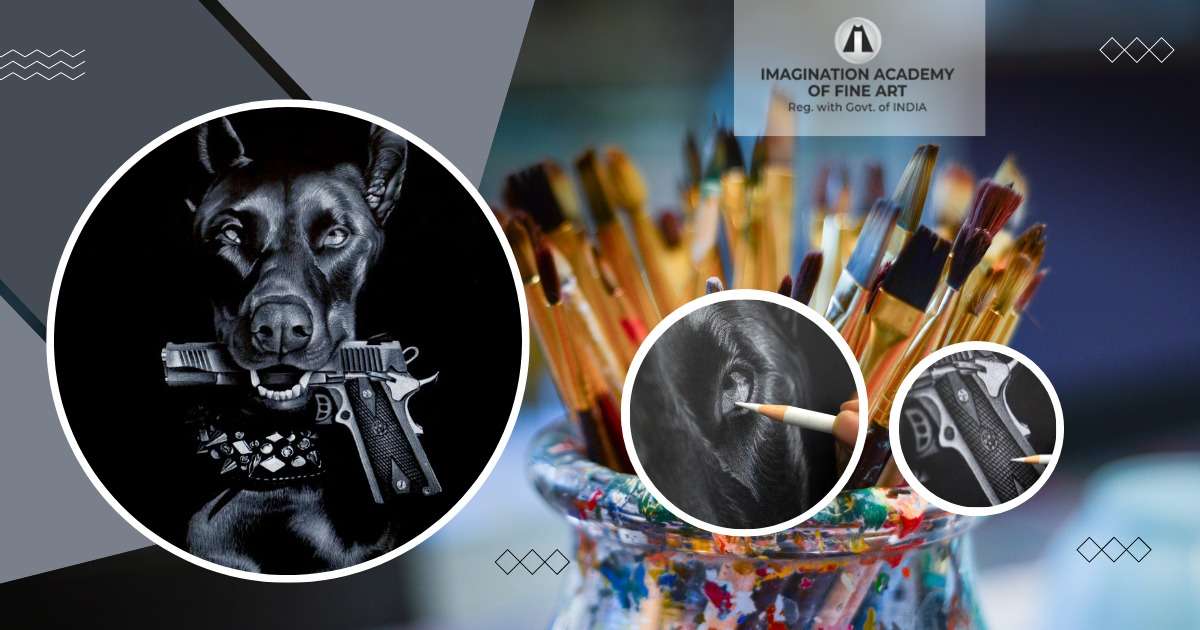Do you like to paint? Are you able to draw or sketch something interesting? If your response is no to either question, it’s likely that you don’t love painting. And if you don’t love painting, you’re unlikely to remain with it long enough to improve.
Painting is enjoyable, soothing and even therapeutic. While some see it as a hobby, others see it as a professional path.
There are many different ways to refine your painting skills. Drawing, sketching and color theory are a few examples of these techniques. Another option is to pick up knowledge from more accomplished artists. But no matter what approach you choose, be sure you practice frequently and consistently.
So without further ado, let’s talk about how can you refine your skills and add value to your painting.
Make Use of a Brush
A brush is a perfect tool for painting. In fact, painters can create different effects thanks to the various shapes and sizes of brushes. They are ideal for painting huge canvases because they can swiftly cover enormous regions. Furthermore, they are useful for uniformly applying paint to a surface.
Experiment In Front of a Mirror
When you practicing in front of a mirror, you’ll realize how much easier it is to evaluate where you need to add color.
You’ll also be able to spot any errors you make right away. Moreover, if you’re working on a bigger project, a mirror might help you keep track of what you’ve previously painted.
Maintain A Sketchbook
Before you begin painting, sketch out ideas to get a sense of what colors work well together and which don’t. Sketches can also help you decide whether two colors should be used together or whether they look fine on their own.
Before You Begin Painting the Canvas, Practice on Paper
Paint on paper allows you to test out your colors before applying them to a canvas. You may also sketch out ideas on paper before you start painting.
When you begin, you’ll need a surface to work on. Instead of beginning with your canvas, consider painting on paper first. This might give you a clear knowledge of what colors to merge before you begin painting.
Don’t Be Afraid to Experiment with Something New or Different
If you’re reluctant to try new tactics, you might not learn anything. Experimenting with new approaches might provide some surprising outcomes. So constantly experiment with new painting designs. And constantly experiment with color tests to see whether a color appears nice or not.
Bonus Tips
Get Outside and Create Something!
Anything, everywhere may be painted. You don’t need to be concerned with technique or content just yet. Simply paint something to see what works and what doesn’t. When you’re through painting, take a look at your work and try to figure out why it looks good (or poor).
Purchase A Brush or Two
A brush is actually rather inexpensive when compared to the amount of time and effort required to perfect its use. Some brushes might even cost thousands of rupees. So if you want to become serious at painting, we recommend investing in a set of high-quality brushes with varied bristle thicknesses.
Begin on a Low-Cost Surface
Begin practicing on an inexpensive surface like cardboard boxes before investing in a canvas. Canvases are pricey and they aren’t meant to shatter after only one use. That’s why they’re referred to as canvases.
Check That Your Surface Is Clean
Cleaning your surfaces is essential before you begin painting. Dusting off extra dirt will assist in keeping all surfaces clean.
Be Realistic About Your Expectations as an Artist
Painting is not a pastime. Don’t expect to get rewarded for finishing your masterpiece. Instead, concentrate on having fun while practicing.
Final ThoughtsSo these are some of the easy ways that can help you add value to your painting. And now that you know them, we certainly hope that you are motivated to take up painting classes in Dehradun. After all, they are not so difficult when you get expert guidance from the best fine art institution in Dehradun.




